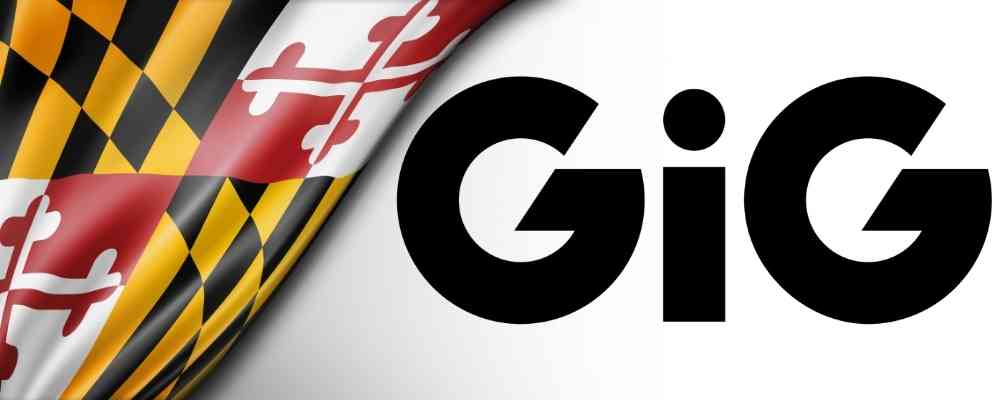How MD sports betting could affect small businesses

In May 2021, Governor Larry Hogan signed off HB940, legalizing sports betting in Maryland. Many people saw this as an opportunity, including Raymond Morris, the mayor of Cumberland., He stated that he hopes the legalization will be a positive economic impact.
With the passing of this bill, the state allowed for 30 small business licenses in the sports betting sector. According to the Cumberland mayor, numerous businesses in his municipality are interested in the licenses. For example, fore Axes is a popular bar/lounge with gold bays and axe throwing.
Before the legalization, Cumberland residents were forced to cross to West Virginia to bet on sports legally. Mayor Morris and other lawmakers have adjusted a few ordinances, allowing punters to wager while in the city.
Hence, now is a good time for entrepreneurs to venture into MD sports betting. But should they get involved?
The sports betting question to consider
Maryland has allowed sports betting, and residents couldn’t be happier about the decision. Nonetheless, the bigger question remains should small businesses get involved or not? This has complicated answers.
First, Cumberland has an advantage that is not available to all towns in the state. Sports betting is relatively new in this town. Therefore, it can be easier for small businesses to be successful. This is not the case with cities that have renowned Maryland casinos, as competition can be stiff.
In addition, sports betting is a profitable business if done right. However, it can be risky if calculative measures are not put in place. At an educational summit in early May, Johnny Grooms, who serves as the director of East Coast retail sportsbook operations at BetMGM, stated that sports betting has substantial risk, and businesses can lose money. Hence, entrepreneurs need to make the right moves in this industry.
How do you start a Maryland sports betting business?
Household names like BetMGM and FanDuel lose money. So how will a small business compete?
According to Jimmy Rhee, MD’s special secretary of small, minority, and women business affairs, entrepreneurs need to build their businesses using three pillars to be successful. These are core competency, understanding/access to capital, and understanding the competitive arena. Examples of the activities that fall under these pillars are competent record-keeping and creativity. Some tasks can be daunting. Luckily, resources that make work easier for business owners are available.
Find a partner
It is beneficial for small businesses should partner with established ones. Tory Key, Elys Game Technology’s business development project leader, spoke at the summit about how they have helped several businesses grow in the sports betting space.
Key said that novice entrepreneurs should allow experts to take care of complicated activities, such as handling moving point spread lines or setting responsible gambling policies s. Consequently, they can focus on handling day-to-day operations.
Grand Central Sportsbook in D.C. is one of Elys Game Technology’s clients. As a result, it has created a reputable brand in the industry. In the 2022 fiscal year, its total handle was $3.35 million, while its gross gaming and tax revenues were $437,848.93 and $43,784.70, respectively.
What businesses can venture into sports betting?
Grand Central, a bar/restaurant, is what people consider which business should enter the sports betting field. However, Key pointed out that many of their clients are coffee shops overseas.
This is eye-opening for a significant percentage of businesses who may have thought they don’t qualify to get a sports betting license. But, unfortunately, out of approximately 90 attendees of the summit, only five or six of them fall under the small business category.
Tom Brandt, the Sports Wagering Application Review Commission (SWARC) chairman, said that this could be a potential red flag as it makes it hard for prospective clients to find quality applicants.
However, regardless of the numbers, officials at the summit were still optimistic. They hoped that, with time, small business owners would be interested in being involved with the betting industry.
Michael Pollock, the managing director of Spectrum Gaming Group, said that the situation in Maryland is a challenge. He added that the state needs to put in a lot of work and have realistic expectations to introduce many small businesses into the sports wagering space. However, Michael believes if all people are committed and work towards the same goal, it is possible to grow the industry in Maryland.
The small business license in-depth
Interested parties have to get a license to run sports wagering activities in the state. Here is a breakdown of the licenses.
The first one is Class A-1 at a fee of $2 million. It is renewed at a $500,000 fee every five years. This license is for casinos that own 1,000 or more machines, professional sports infrastructure, and horse racetracks. The license fee for class A-2 is $1 million and a $300,000 renewal fee every five years. Eligible license holders are casinos with less than 1,000 machines.
Class B-1 is the next license category. It goes for a $250,000 license fee and a $50,000 renewal fee every five years. Any business that does not fit in class B-2, which will be disused next, qualifies for this license.
Class B-2, a license for small businesses with less than 25 employees and $3 million in gross receipts, has a fee of $50,000 and a $10,000 renewal fee every five years. Lastly, the mobile category has a license fee of $500,000 and a $100,000 renewal fee every five years. Anyone can apply for a mobile license.
From this breakdown, a small business license starts in the Class B section, particularly B-2. With a permit, bars, restaurants, coffee shops, and other small retail businesses can have a sportsbook in their establishments.
Note that these licenses will be earned on a competitive bidding process as the government has only set aside 30. First, SWARC will establish the process and criteria for awarding the licenses. After which, the Maryland Lottery and Gaming Control Agency (MLGCA) will vet all licenses thoroughly. A permit can only be issued when a business checks all the required boxes.
How are things currently
At the summit, Kimberly Copp of the law firm Taft Stettinius & Hollister confirmed that SWARC is still developing regulations. However, MLGCA’s vetting background application is available on their website. The next SWARC meeting will be held on Thursday, June 16, 2022.

Written By
Josh CampbellJournalist based in MD. Huge sports fan and intrigued by the US movement toward legal sports betting. I count myself among fans of legal sports gambling in Maryland.





